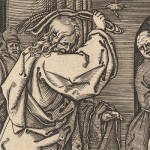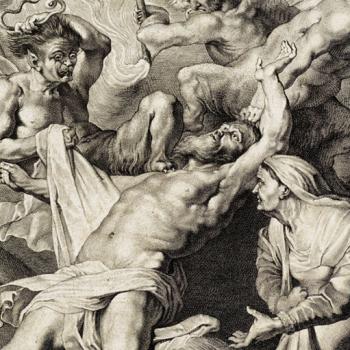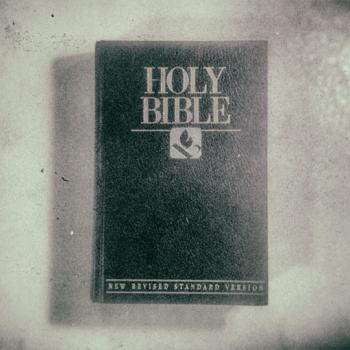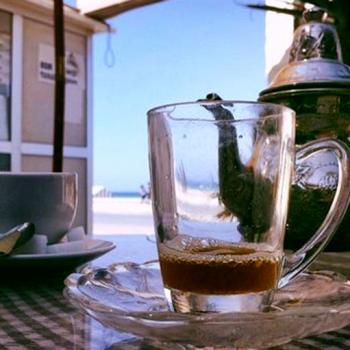Reverend Jonathan Gaska wrote this letter as a meditation for the annual Dellabrook Presbyterian Church/Trinity Presbyterian Church Picnic. The two churches gather each year in an ongoing effort to mend the racial divisions in Winston-Salem, North Carolina, by worshiping and eating a meal together. Each year the location shifts between the east side, which is prominently African American, and the west side, which is prominently white. The event has taken place every year for 39 years.
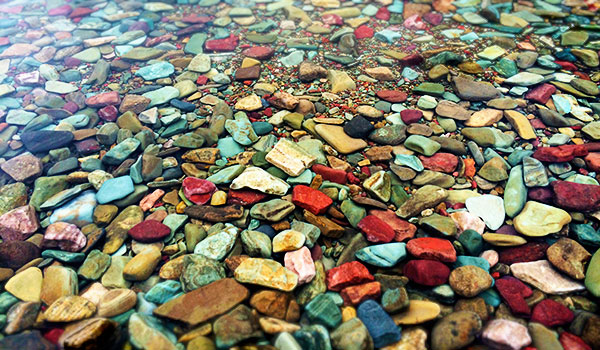
Then God said, “Let us make humankind in our image, according to our likeness…So God created humankind in God’s image, in the image of God they were created; male and female God created them… (Genesis 1:26-27)
Dearly Beloved,
Perhaps you can remember the story from a few years back. It was about an elementary school principal who at the end of each school day, after the bell would sound, would catch every single child as they scurried out the front door, pointing at them and saying, “Your life matters.” In church language, we might say that she was reminding every single student that they are created in the image of God.
Beloved, you are created in God’s image. When God imagined a world bursting forth with goodness, after God spoke a liberating word which unfurled the universe, when God wondered who will bear the image of holy love and community, God created…you.
Remember, though, God says, “Let ‘us’ make humanity in ‘our’ image.” God’s image is communal, which means our image is communal as well. And let’s be real: It’s the “us” part that is the complicated piece. We have natural compulsions to hide and divide. We often live according to our own self-interest rather than in the interest of another. Our systems fracture us. Our political allegiances consume us. Even our theologies can become fodder for injustice.
The communal image of God is ruined by tribal loyalties and caste systems and oppressive powers which force our friends and family members into dances of compliancy. We, as a human race, have made the diverse, communal image of God too small. As Blaise Pascal once wrote: “God made humanity in God’s image and then humanity returned the compliment.”
But please hear this well, beloved: this all-expansive, communal image of God that is bestowed on us requires that we reaffirm those who have received “less-than-image-of-God” status. It is why we stand with the Muslims, immigrants, refugees, and women. It is why we speak out against legislation that threatens LGBTQ rights. It is why we proclaim “Black Lives Matter.”
This is also why, when someone says “All Lives Matter” as an alternative to affirming Black lives, it narrows our perspective and makes the affirmation less rather than more inclusive. Why? Because it fails to confess that we live in a society that does not affirm the existence of Black bodies as valued and equal citizens in our community. The statement affirming “all lives” suggests that our system functions equally for everyone, when it clearly does not.
Think about it: if one of our children comes home from school after having a peachy-keen day, while the other comes through the door rattled in angst because of something that happened, which child will we need to reaffirm more—with both our words and actions—that they matter? If our hurt child asks us with tear-filled eyes, “Do you love me?” how might they feel if we responded, “Well honey, I love everyone!”?
I think it’s why Jesus said he came for the sick and vulnerable and not for the healthy ones who are already provided for (Matt. 9:12).
It’s why Jesus says we will recognize him not as some random Joe we pass at the supermarket (or in our churches!), but as one who is hungry, thirsty, naked, in the hospital, or in prison (Matt. 25:35).
It’s why the very first words of Jesus’ first sermon do not begin with an all-inclusive, “Blessed are all lives!” Rather, he singles out for blessing the poor, the meek, the mourning, the merciful, and the peacemakers (Matt. 5:1-11).
Jesus reaffirms those who have received “less-than-image-of-God” status, and he encourages those who are willing to risk of themselves to serve and protect God’s image in others. Jesus reminds us that the God we worship is far bigger than the social constructs our systems create—including whiteness—which can conveniently cast away or hold People of Color down; not only economically, but socially, psychologically, and spiritually as well.
So, dearly beloved, here we are: Dellabrook and Trinity. Two churches who are brought together by a thirty-nine-year tradition which has been handed down through the decades to us. Here we are in a space held sacred each year where can pray for each other, share our stories and experiences, and eat way too much food!
I hope you know that I have always sensed the presence of the Holy Spirit when we are together. Perhaps it is because we’ve been graced with a conviction—which goes back all the way to the beginning of creation—that we reflect God’s image more together than we do apart, that we really are woven in the single garment of destiny, bound together as holy people who are made in the image of the Holy Community.
With all God’s grace, peace, love and glory, Amen.
Photo by Dan Wilkinson.
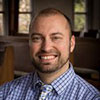 About Jonathan Gaska
About Jonathan Gaska
Jonathan Gaska is the pastor of Trinity Presbyterian Church in Winston-Salem, North Carolina. He is also a poet and jazz musician.


